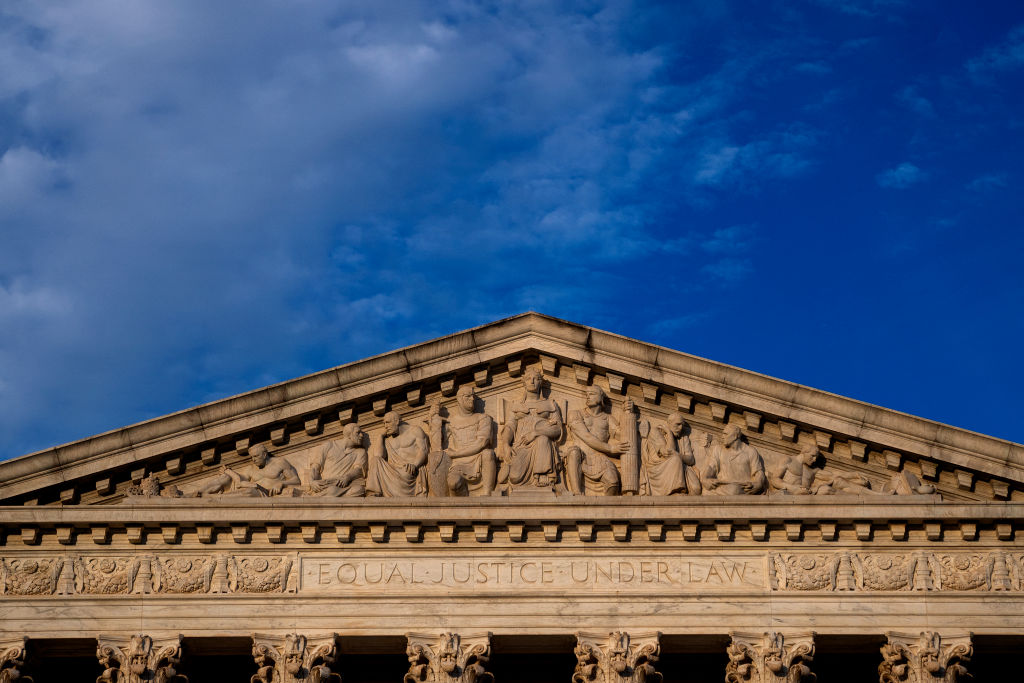(NewsOne) —
Numerous studies have indicated that people with Black-sounding names are less likely to get called back for a job interview than applicants with traditionally white-sounding names. It’s one of the many ways white people have an advantage in the workforce and in society in general, and it’s one of the many reasons the DEI programs they abhor so much were ever necessary in the first place.
In Detroit, a Black man has filed an employment discrimination lawsuit against a hotel alleging the establishment only offered him a job interview after he changed the name on his resume.
Meet Dwight Jackson—or as the Shinola Hotel in Detroit reportedly knew him when he was called for an interview: “John Jebrowski.”
According to CNN, Jackson’s lawsuit alleges that he was denied a job under his own name in “violation of Michigan Elliott Larsen Civil Rights Act,” but he applied to Shinola Hotel “twice for similar positions under a more readily apparent Caucasian name, with the alias ‘John Jebrowski,’” and, voila, he suddenly gets the call back he’s been waiting for. Jackson’s suit also claims he was offered multiple interviews within the same week when applying under his Caucasian-friendly pseudonym—a glaring departure from the response he got after applying under his given name.
From CNN:
Between January and April 2024, Jackson, a 27-year-old Black man, applied to multiple positions at the Shinola Hotel in downtown Detroit, including a role in reception, according to the lawsuit. On its website, Shinola Hotel says it is a “luxury” hotel.
Jackson’s attorney, Jon Marko, provided CNN with a copy of Jackson’s resume, which details consistent employment, including previous roles as a “Front Desk Agent” at Detroit’s Marriott Westin Book Cadillac and David Whitney Hotel, which use the words luxury and luxurious to describe their respective hotels.
“Mr. Jackson had applied for a job that he was eminently qualified for,” Marko, a civil rights attorney, told CNN. However, Shinola Hotel did not offer Jackson an interview.
After getting no response to his initial job applications, in April 2024 Jackson applied again, making one significant change to his application — his name.
According to Marko, Jackson showed up to the interview he landed as Jebrowski, but he confronted the interviewer revealing his true identity and expressed his belief that he was rejected under his own name because it indicated he was Black.
“Shortly after Jackson underwent the interview process, he was informed that he was no longer a viable candidate for the position,” the lawsuit states.
“Jackson established that the Defendant’s consideration of candidates was based on the racial appearance of the applicant’s name,” the suit alleges. (Again, this is exactly what white people claim when they complain about DEI while completely oblivious to how society has historically provided them with their own version of affirmative action.)
Anna Stancioff, the Senior Corporate Director of PR & Brand Communications for Sage Hospitality Group, Shinola Hotel’s operating partner, released a statement Tuesday that was pretty standard for corporate statements regarding allegations of racism.
“We take this allegation very seriously and do not tolerate discrimination of any kind,” Stancioff wrote. “We are committed to fostering an inclusive workplace where everyone has the opportunity to succeed and are dedicated to building a diverse workforce that reflects the community.”
According to Marko, despite the studies that have shown name discrimination is an issue for Black people looking for jobs, winning a case like this is an uphill battle.
More from CNN:
A recent study published by the National Bureau of Economic Research found that name bias is a prevalent issue in the hiring process. Researchers sent out identical resumes to 108 U.S. employers to analyze whether race and gender affected callback rates for job applications. Resumes with Black male and Black female names received the fewest callbacks.
But, Marko said, proving cases of name bias is extremely challenging and most of these cases never get off the ground due to a lack of evidence.
Jackson’s case is different, he said, because he applied twice for similar positions with nearly the exact same resume and it yielded different results when he used the alias.
Marko said Jackson ‘wants to shed light on this problem that’s not just isolated at the Shinola Hotel, not just isolated in Detroit or Michigan, but across the country. He wants to make sure that it doesn’t happen to anyone else.’
—
Read More News from News One
